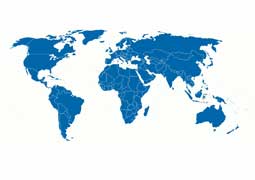
The Department of International Relations and Cooperation is embracing economic diplomacy as a new strategy to support South Africa’s developmental agenda. This came out in a meeting today in which the Portfolio Committee on International Relations and Cooperation received a briefing from the department on how these sorts of strategies contribute to alleviating South Africa’s domestic challenges.
Minister Naledi Pandor told the committee that this shift in strategy complements traditional political diplomacy. Economic diplomatic efforts include identifying opportunities for South African companies and then supporting these companies and protecting them where possible. The department aims to be a repository for economic information and ensure South Africa’s interests are promoted and protected, while bearing in mind its regional and continental agendas.
A recent visit by the Kenyan President was one such initiative, which concerned negotiations around the supply of armoured personnel carriers worth US$71 million. If approved, the contract will create 151 permanent and 70 temporary jobs, while 18 large, 26 medium and 61 small enterprises will also be involved.
In Rwanda, the Industrial Development Corporation is involved in building of a five-star luxury floating hotel in partnership with the Mantis Collection Group. In Ghana, the Development Bank of South Africa (DBSA) is involved in a due diligence of a railway construction project. In addition, Nigerian aeroplane pilots are now being trained in South Africa, rather than in the United States, as previously.
Following the department’s presentation, various members of the committee posed questions. One member, Mr Skhumbuzo Mpanza, asked if these initiatives would benefit marginalised businesses in rural areas and townships, or those who have benefitted from black economic empowerment and who were privileged by apartheid.
The minister replied that one of the department’s roles is to frame the Economic Reconstruction and Recovery Plan of agriculture exports. This allows the department to provide indirect support to farmer in rural areas through the leverage of value-chain exports. In addition, township entrepreneurs produce sneakers and T-shirts that form part of the local content on initiatives to assist local businesses to access African markets.
Another committee member, Mr Willem Faber, wanted to know why the department did not mention BRICS [Brazil, Russia, India, China, South Africa] in its presentation. The minister responded: “We were not asked to make a presentation on Brics. But we can report that China, one of the BRICS partners, is one of the largest trading partners of South Africa. India is also following suit.”
In response to a question from committee member Mr Bheki Nkosi and progress on reviving the Southern African Development Community rail network to facilitate trade in the region, the minister answered: “This matter has been discussed in minister’s council. It would now be followed by relevant departments, but there’s appetite for this to happen.”
The committee Chairperson, Mr Supra Mahumapelo, queried why some SADC member states have not ratified the free trade agreement. The minister replied that this is a SADC protocol. South Africa would like a report on why other countries have not ratified this agreement; it is the SADC secretariat’s responsibility to ensure that this happens.
The Chairperson also wanted to know the extent to which these economic diplomacy strategies empower women. The minister responded that the department is involved in a project with Transnet, which has a procurement policy that reserves some of its procurement for women-owned businesses. In addition, a forthcoming South Africa Week in Mauritius will be showcasing the talent and businesses of South African women crafters.
In his concluding remarks, the Chairperson commended the department for its responsiveness, saying it will assist the committee when it conducts oversight. He also mentioned that there is a need for the department to make join presentation with the Department of Trade, Industry and Competition due to the cross-cutting nature of their work, to see how they can complement each other and ensure that economic diplomacy achieves its full potential.
Abel Mputing
7 September 2022

